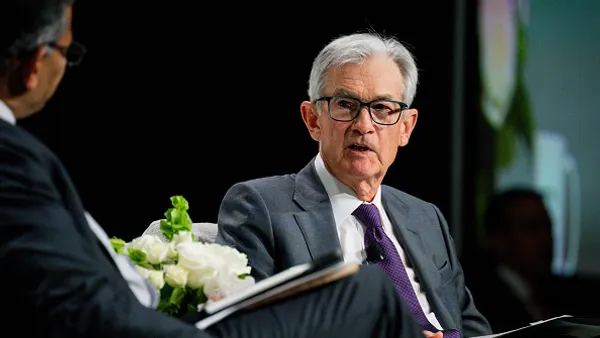Don't surprise the CEO or other colleagues if you plan to share a problem with the board, veteran tech investor and former eBay COO Maynard Webb advised CFOs in an Airbase webcast.
A CFO concerned about the company's direction or an internal issue has an obligation to inform the board. But how to do so is crucial for the success of the business, said Webb, who sits on the boards of Visa and Salesforce and is former board chair of Yahoo!
"I would not surprise my CEO or any other colleague any more than I would want to surprise my board," he said. "I would make sure that anything I was going to say, if I knew ahead of time that I was going to be asked something or I was going to say something, that my peer or my CEO knew that I was going to bring that up, and how I would approach that."
Like CEOs, CFOs are unique among c-suite executives in the amount of access they have to the board, in part because of their role on the audit committee, which all public boards have. That gives them an opportunity to talk privately and at length to board members about concerns, but they have to use that access carefully.
"You don't usually [want to] bring up things that are about how the CEO is driving me crazy or something like that," he said.
If the board asks a sensitive question, answer it to the best of your ability, but also let the others know immediately afterwards.
"Go make sure whoever you said that about hears the context," he said. "That's how you build trust. In every interaction with someone, you're either gaining trust or losing trust, so you need to tell the board the truth but you also need to make sure, if it could be inconvenient or harmful for someone else, they hear that as well."
Filling talent gaps
Webb has been involved in technology companies since the early 1990s. He held leadership roles at Bay Networks and Gateway, the PC pioneer, before joining eBay as its COO just as it was taking off. Working alongside CEO Meg Whitman, he oversaw the company's operations as it grew from $100 million in revenue to more than $4 billion. He also was CEO of LiveOps before launching an investment fund.
As a board member, Webb said, when he's asked to interview CFO candidates, he wants to know why the people they've worked with think they're great, what they identify as their weaknesses, and what he'll learn about them after they've been on the job.
"There's no one candidate that's a perfect answer for everything," he said. "How willing is this person to talk about what they're not good at? How have they solved that? Everybody loves you now, but I'm going to know you a lot better in six months; what am I going to learn about you that you should tell me about now? I'm looking for candor and integrity as much as capability."
More than with other executives, unless they're joining a startup, CFOs typically come into their position with a team already in place that can handle much of the basic accounting and reporting function. The challenge for CFOs is often finding opportunities for their people to keep them from leaving.
"In the best of all worlds, you have a strong enough team and a deep enough bench that you don't have to do outside recruiting," he said. "You're losing your best talent because there's no slot open."
CFOs are expected to hire people to fill their gaps, he said.
"You don't want to find out what's not their strength after they're on the job," he said. "The people who are self-aware, as most CFOs are, would say, ‘Look, if I did this, hopefully we have a chief accounting officer that's amazing, because that's not what I am. But I know enough that, if for whatever reason, I don't have a great chief accounting officer, I know I can get one. I have a good reputation. I have a good network. So you won't have to worry about it."
Strategy and operations
The best CFOs are strategically and operationally strong, he said. Operationally, they must be the person board members and investors can turn to for the unadorned picture of how the company is doing.
"I'm looking for true north when I talk to the CFO," he said. "I'm not looking for the company line. When the CEO is talking, everybody's nodding their head in agreement, but as CFO, you're expected to be representing shareholders and applying judgment. So, I'm looking for candor about what's working and what's not, what they're worried about, what we can do to help them."
CFOs must also keep the company from getting too close to ethical lines.
"Especially in younger companies if you've got a CEO who's never been a CEO before, you need someone who understands what the rules are," he said.
"There's judgment that's applied, what's allowed, what's not allowed. If you break a law that's pretty clear, but if you apply judgment and it gets close to the line, how do you deal with that? On boards I serve on, we don't want to live anywhere near that line. You operate in a better place when you're safely above any dangerous territory. Trust is our number one value," Webb said.















